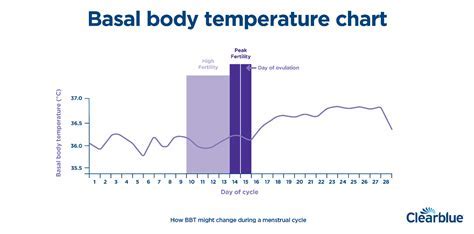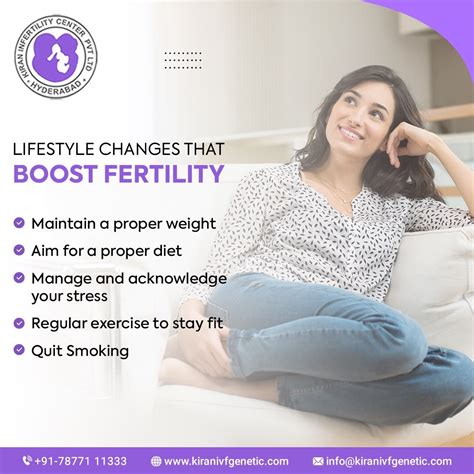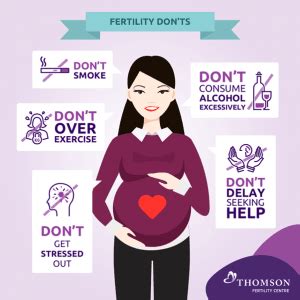Intro
Boost your chances of getting pregnant quickly with our expert tips. Discover the best ways to conceive, including optimizing fertility, tracking ovulation, and maintaining a healthy lifestyle. Learn how to overcome common fertility obstacles and increase your chances of a successful pregnancy. Get pregnant fast with these evidence-based tips for couples trying to conceive.
Trying to conceive can be an exciting yet overwhelming experience for couples. With so many factors to consider, it's easy to feel like you're not doing enough or that you're doing something wrong. However, with the right approach and mindset, you can increase your chances of getting pregnant quickly and easily.

For many couples, getting pregnant is a straightforward process that happens naturally. However, for others, it can take time, patience, and perseverance. According to the American Society for Reproductive Medicine (ASRM), approximately 1 in 7 couples experience difficulty getting pregnant. This can be due to various factors, including age, lifestyle, and underlying medical conditions.
Despite the challenges, there are many things you can do to boost your fertility and increase your chances of getting pregnant quickly. In this article, we'll explore the top tips for couples trying to conceive, from understanding your cycle to making lifestyle changes that support fertility.
Understanding Your Cycle
Before you start trying to get pregnant, it's essential to understand your menstrual cycle. This will help you identify your fertile window and time intercourse accordingly. A typical menstrual cycle lasts around 28 days, with ovulation occurring around day 14. However, this can vary from woman to woman, and it's crucial to track your cycle to determine when you're most fertile.

To track your cycle, you can use a variety of methods, including:
- Basal body temperature (BBT) charting: This involves taking your temperature every morning to identify the slight increase in temperature that occurs after ovulation.
- Ovulation predictor kits (OPKs): These kits detect the luteinizing hormone (LH) surge that occurs before ovulation.
- Fertility apps: These apps use algorithms to track your cycle and predict when you're most fertile.
Identifying Your Fertile Window
Once you've tracked your cycle, you can identify your fertile window. This is the time when you're most likely to get pregnant, and it typically lasts around 5-7 days. During this time, you should aim to have regular, unprotected sex to increase your chances of conception.
To maximize your chances of getting pregnant, try to:
- Have sex every other day during your fertile window
- Aim for morning sex, when sperm count is typically highest
- Avoid using lubricants, which can affect sperm motility
Lifestyle Changes to Boost Fertility
In addition to understanding your cycle and timing intercourse, there are several lifestyle changes you can make to boost your fertility.

These include:
- Maintaining a healthy weight: Being overweight or underweight can affect fertility, so aim for a healthy BMI.
- Eating a balanced diet: Focus on whole, nutrient-rich foods, including fruits, vegetables, whole grains, and lean proteins.
- Staying hydrated: Drink plenty of water throughout the day to support reproductive health.
- Reducing stress: High levels of stress can affect fertility, so try relaxation techniques like meditation or yoga.
- Getting enough sleep: Aim for 7-8 hours of sleep per night to support hormone regulation.
Supplements to Support Fertility
In addition to making lifestyle changes, there are several supplements you can take to support fertility. These include:
- Folic acid: This B vitamin is essential for fetal development and can help prevent birth defects.
- Omega-3 fatty acids: These healthy fats support hormone production and can help reduce inflammation.
- Vitamin D: This vitamin is essential for hormone regulation and can help support fertility.
- Coenzyme Q10 (CoQ10): This antioxidant supports energy production and can help improve sperm quality.
Medical Factors Affecting Fertility
While lifestyle changes and supplements can help boost fertility, there are also several medical factors that can affect your chances of getting pregnant.

These include:
- Age: Women over 35 and men over 40 may experience decreased fertility.
- Polycystic ovary syndrome (PCOS): This hormonal disorder can affect ovulation and fertility.
- Endometriosis: This condition can cause inflammation and scarring in the reproductive tract.
- Low sperm count: Men with low sperm count may experience difficulty getting pregnant.
If you're experiencing difficulty getting pregnant, it's essential to speak with a healthcare provider to rule out any underlying medical conditions.
When to Seek Medical Help
If you've been trying to get pregnant for over a year and have not been successful, it's time to seek medical help. Your healthcare provider can perform tests to identify any underlying medical conditions and provide guidance on the best course of treatment.
In addition to medical help, there are also several alternative therapies you can try to support fertility. These include:
- Acupuncture: This ancient practice involves inserting small needles into specific points on the body to stimulate fertility.
- Herbal supplements: Certain herbs, such as maca and tribulus, may help support fertility.
- Fertility massage: This type of massage focuses on the reproductive organs and can help improve blood flow and reduce stress.
Conclusion
Getting pregnant can be a challenging and overwhelming experience, but with the right approach and mindset, you can increase your chances of success. By understanding your cycle, making lifestyle changes, and seeking medical help when necessary, you can boost your fertility and get pregnant quickly and easily.
Remember, every couple's journey to parenthood is unique, and it's essential to stay positive and focused on your goal. With time, patience, and perseverance, you can achieve your dream of starting a family.
How long does it take to get pregnant?
+The length of time it takes to get pregnant varies from couple to couple. On average, it can take around 6-12 months to conceive.
What is the best time to get pregnant?
+The best time to get pregnant is during your fertile window, which typically lasts around 5-7 days.
Can lifestyle changes really improve fertility?
+Yes, lifestyle changes such as maintaining a healthy weight, eating a balanced diet, and reducing stress can all help improve fertility.
